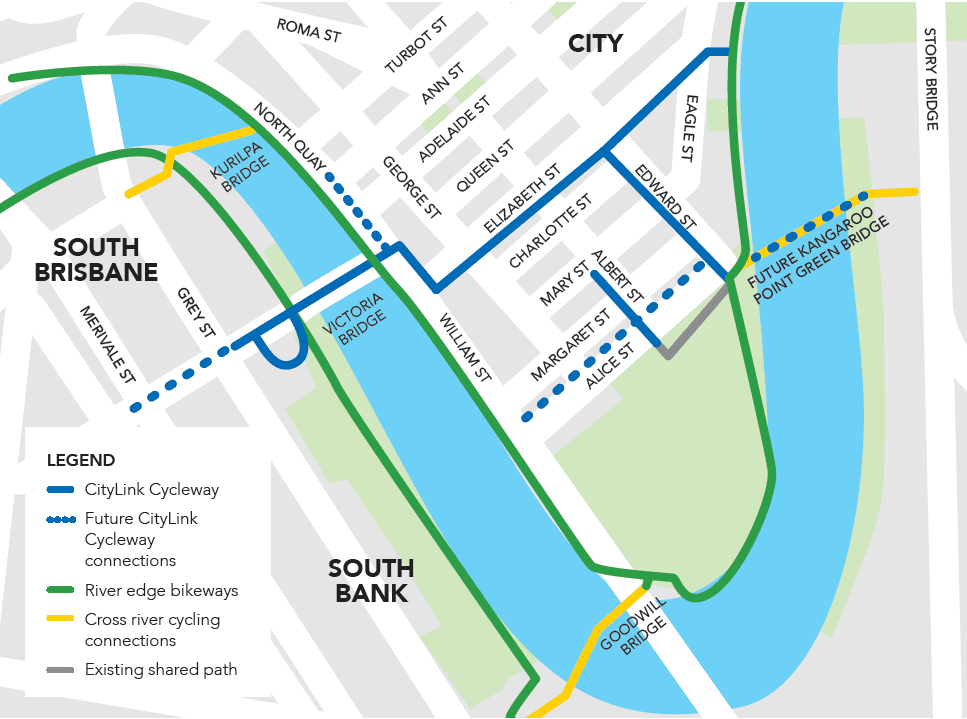Brisbane CBD To Install Separated Bike Lane Trial Immediately

Over the past decade the Brisbane City Council has spent more money on cycling infrastructure than possibly any other local government in Australia.
But this is not so impressive as it might sound for two key reasons. Firstly, at over 1.2 million residents, it has by far the greatest population of any Australian local government area. This is because, unique amongst all Australian city councils, in does not just include the CBD and some inner suburbs, but also a large portion of the greater Brisbane urban area. So other councils have spent more on a per capita basis.
Secondly, although they’ve built some top quality separated infrastructure through the suburbs, they’ve always gone weak at the knees when it comes to continuing this where it is needed most, through the heart of the CBD… until now.
On 28th September 2020 Brisbane City Council’s Public and Active Transport Committee Chairman, Councillor Ryan Murphy said that the council, “believes the time is right to make some of the tough decisions that need to be made to encourage a mode shift to active transport in Brisbane.
“There’s now a lot of great ways to get to the outer edge of the CBD on a bike, but no safe way to get into the heart of the city itself,” he said.
“Fundamentally, we have had to ask ourselves the question, what is the best use of scarce road space in the CBD? Is it to allow a handful of private vehicles to sit there for hours, or for thousands of cyclists and e-scooters to commute safely?”
At a cost of $2.2 million, the separated bike lanes will run the full length of Elizabeth Street and down Edward Street to Alice Street, where one lane will meet the future Kangaroo Point green bridge.
Another separated lane will run up Albert Street from Alice Street, to the Cross River Rail station under construction.
The lanes will be in place for a 12-month trial.
Each will have raised yellow barriers between it and vehicle lanes, with green paint to denote the cycling lanes.
Bike lanes on Edward and Elizabeth streets are expected to be ready by Christmas and Albert Street should be in use in January.
A third lane from William Street to Grey Street in South Bank will be installed next year.
The new CityLink Cycleway will require removal of 58 metered parking spaces, 10 motorcycle parking spaces, 40 night-time motorcycle parking spaces, 17 loading zones and three taxi zones.
A further 18 car parks and two motorcycle spaces will go, and some all-day bus stops will be converted to daytime or peak-hour only bus stops. Other bus stops will be relocated.
Most of this article was previously published in the Brisbane Times and Melbourne Age.
